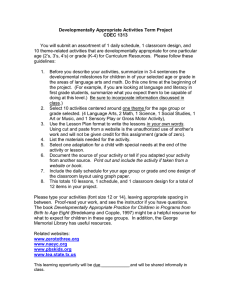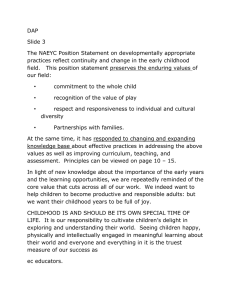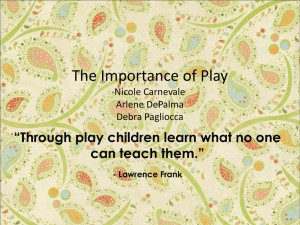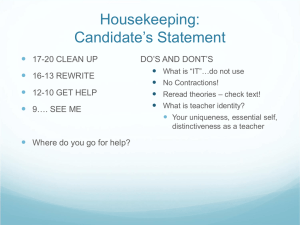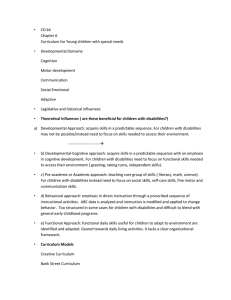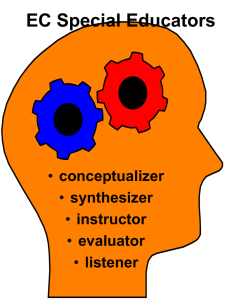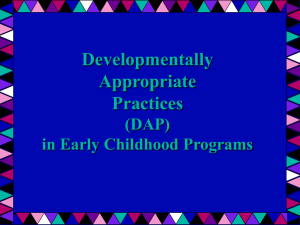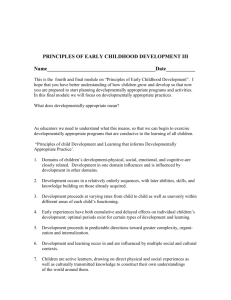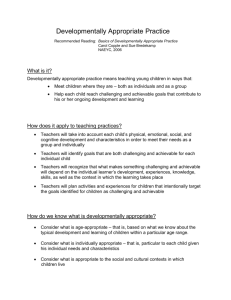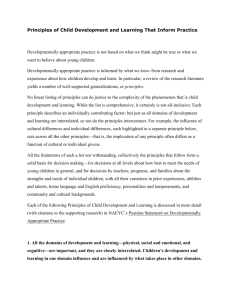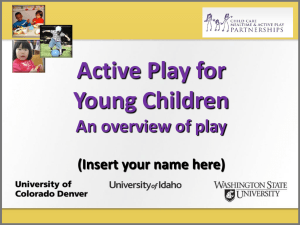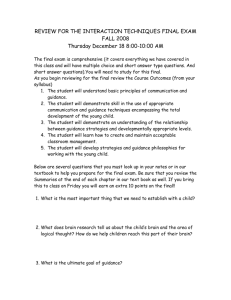Developmentally Appropriate Practice
advertisement
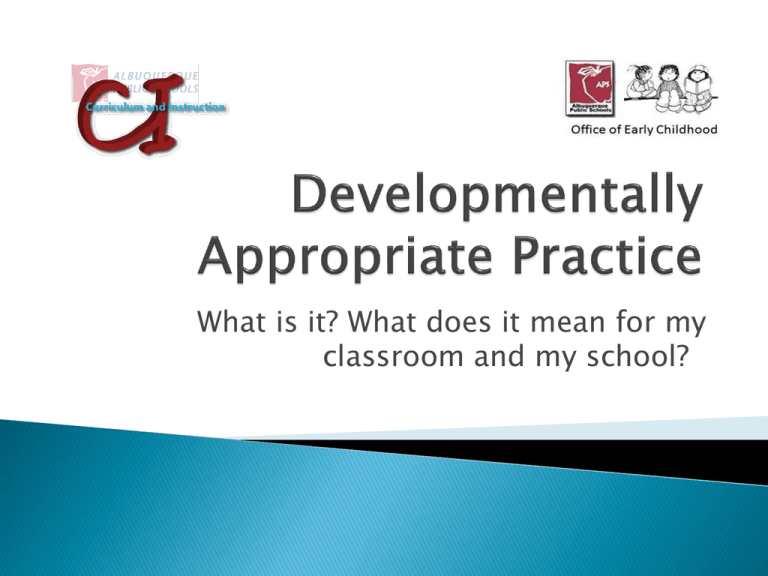
What is it? What does it mean for my classroom and my school? Knowledge Must Inform Decision Making Goals Must Be Challenging And Achievable Teaching Must Be Intentional To Be Effective ◦ What is known about child development and learning Age related characteristics Predict what experiences will promote learning and development What is known about each child as an individual has implications for: How best to adapt curriculum How to be responsive to each child. What is known about the social and cultural contexts in which children live: Understand values, expectations, behavior and languages of children Ensures their learning experiences are meaningful, relevant , and respectful for each child and their family. Meet children where they are but don’t leave them there Scaffold learning Reflect on student learning and advancing learning in a developmentally appropriate way Intentional in everything you do ◦ ◦ ◦ ◦ ◦ ◦ Setting up the classroom Planning curriculum Making use of various teaching strategies Assessing children Interacting with children Working with their families Direct your teaching toward the goals of the program (i.e. standards) Creating a Caring Community of Learners Teaching to Enhance Development and Learning Assessing Children’s Development and Learning Planning Curriculum to Achieve Important Goals Establishing Reciprocal Relationships with Families DAP is not a curriculum ◦ Provides guidelines for what makes a curriculum developmentally appropriate ◦ Teachers use this set of guidelines to help them make sound decisions Teachers make decisions with the following key points in mind: Age Appropriateness Individual Appropriateness Social and Cultural Appropriateness 1. View the DVD included in Developmentally Appropriate Practice in Early Childhood Programs ◦ Video Examples #2 What Does Developmentally Appropriate Practice Look Like? 2. Read the handout “Key Messages of the Position Statement” 3. Use the 3,2,1 protocol to share with your co-workers
